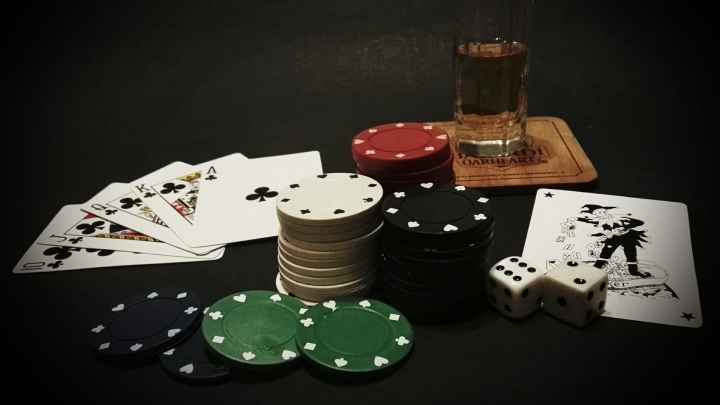
There is this idea in my mind. I want to test Taleb’s idea of a barbell strategy in a domain I’m already quite familiar with: poker. A highly conservative as well as highly risky approach in this area seems like an interesting hypothesis to test. I am relatively sure that most low-stakes players are extremely risk averse, meaning they will only go for higher bets if they are sure to win. By observing their betting behaviour and do the exact opposite they do, this seems like an approach which might bear results. Since most people also tend to fall for sunk costs, I can also abuse this tendency to make relatively high bets whenever my own hand allows it. Otherwise, fold whenever possible and don’t mind playing too much. I don’t need to win every pot, just occasionally some high ones. Never go all-in. Ever. As well as with a decent portfolio you only use a given percentage of your money for risky bets, just in case the other guy has the upper hand. Don’t fall for sunk costs yourself. I am going to try this idea at a few tables with very low stakes, only a few cents every time. If it succeeds, I will apply it at higher tiers. And maybe I should not publish this page publicly too soon, if I actually get something out of it. Wouldn’t it be amusing in a certain way, if the intensive preoccupation with chance, uncertainty and luck now brought me to a possibility to make a profit out of it? Especially in view of the highly conservative approach, any losses should be kept within very manageable limits, and if I should notice the hypothesis does not empirically hold what I had hoped for, then I’ll just draw the cut again. It is exciting in any case. Am I hoping for too much at this moment? Hmm. I know I used to try to calculate the probabilities of each card and predict how individual players will behave. With rather moderate success. Now it all plays a minor role, since a risk averting strategy may yield higher returns in the long run. Even if I lose a hundred rounds with minimal betting, a single pot with high stakes is enough to ensure a nice pay-out. I’m probably just missing some crucial component which I will discover only during the field test. In any case, I don’t think this idea is so highly original that others won’t try it in a similar way. Although this might just be the advantage of low-stake tables. I wouldn’t be surprised if professional players work with similar heuristics and do quite well with them. I think the biggest challenge for me will be the constant evaluation of my actions including the necessary self-control. Any theory and resulting strategy is completely useless if your own brain suddenly thinks “But fuck it, Mallorca is only once a year!” I have no idea why I chose this particular phrase as an example of uncontrolled excess. Whereby. I do. A few years ago, when we were cleaning the bar, the music was so loud hotel guests were complaining. The front desk called and asked for the volume to be turned down a little. Alexej then answered the phone and shouted this very sentence. That was an incredibly dull but at the same time wonderfully funny moment. Yes, this explains it quite well why I remember these words just now. I had to smile involuntarily when I remembered them. Well. Good ol’ times. Six months from now, when I’m a super-rich poker player, you know where it started. I doubt that this will happen, but if it does, I can still say afterwards I knew it long ago and my strategy is of course one hundred percent fool-proof. It is not. I’m the biggest fool of all, if I’d really believe that. It’s just one of many ideas I just want to try out. Trial and error. Tinkering. I don’t know where I’ll end up with this. Worst case scenario, I lose a small amount of money. Best case scenario – well, sky is the limit. Seems like a pretty good trade-off to me. Had I been asked a year ago whether I would seriously consider such an attempt on the basis of my understanding at the time, I would probably have declined quite convincingly. I was too convinced that I would have to win continuously more than the average to win anything at all. And in the end, the bank always wins anyway. Now, with a little more inspiration in terms of randomness and extreme events, the whole game becomes a lot more interesting. In fact, I’m currently most curious to know which crucial point I forgot in my considerations. Something is always there. Definitely. I guess there’s only one way to find out.